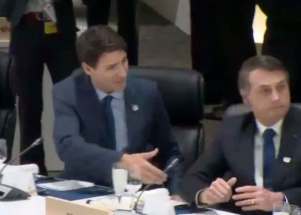Ottawa earmarks $2.2M to help fight Lake Winnipeg algae blooms
Read this article for free:
or
Already have an account? Log in here »
To continue reading, please subscribe:
Monthly Digital Subscription
$0 for the first 4 weeks*
- Enjoy unlimited reading on winnipegfreepress.com
- Read the E-Edition, our digital replica newspaper
- Access News Break, our award-winning app
- Play interactive puzzles
*No charge for 4 weeks then price increases to the regular rate of $19.00 plus GST every four weeks. Offer available to new and qualified returning subscribers only. Cancel any time.
Monthly Digital Subscription
$4.75/week*
- Enjoy unlimited reading on winnipegfreepress.com
- Read the E-Edition, our digital replica newspaper
- Access News Break, our award-winning app
- Play interactive puzzles
*Billed as $19 plus GST every four weeks. Cancel any time.
To continue reading, please subscribe:
Add Free Press access to your Brandon Sun subscription for only an additional
$1 for the first 4 weeks*
*Your next subscription payment will increase by $1.00 and you will be charged $16.99 plus GST for four weeks. After four weeks, your payment will increase to $23.99 plus GST every four weeks.
Read unlimited articles for free today:
or
Already have an account? Log in here »
Hey there, time traveller!
This article was published 04/07/2019 (2354 days ago), so information in it may no longer be current.
OTTAWA — The federal Liberals are unveiling a slew of measures aimed at cutting down on Lake Winnipeg’s algae blooms, the Free Press has learned, as cabin — and election — season gets underway.
Duguid to push for more Lake Winnipeg cash
OTTAWA — Winnipeg South Liberal MP Terry Duguid says he’ll be seeking more funds to be spent on the health of Lake Winnipeg.
“I am pushing my own government very hard to scale up these efforts,” Duguid said Thursday.
“This is Canada’s sixth Great Lake, and it simply needs more attention from federal, provincial and municipal governments, and the citizens of our province.”
OTTAWA — Winnipeg South Liberal MP Terry Duguid says he’ll be seeking more funds to be spent on the health of Lake Winnipeg.
“I am pushing my own government very hard to scale up these efforts,” Duguid said Thursday.
“This is Canada’s sixth Great Lake, and it simply needs more attention from federal, provincial and municipal governments, and the citizens of our province.”
The lake is connected to $100 million in annual tourism revenue, and double that amount in fisheries. When tourists can’t swim in the lake, they stay home, Duguid said.
“We need to scale-up our efforts, because climate change and drought are making the situation worse,” he said, adding floods also release nutrients into the lake, helping fuel the growth of algae blooms.
— Dylan Robertson
“What these projects are meant to do is restore the health of Lake Winnipeg, which is a pretty big challenge,” said Winnipeg South MP Terry Duguid, Ottawa’s point man on the issue.
On Friday, Duguid will be announcing $2.2 million over three years for 19 projects under the Lake Winnipeg Basin Program, which Ottawa rebooted two years ago.
Nutrients such as phosphorus flow into in Lake Winnipeg from across its basin, over-fertilizing the lake and fuelling green-blue algae blooms that release toxins and kill fish.
“Lake Winnipeg is the end of the pipe,” Duguid said, noting the basin spans the Rockies to Lake of the Woods, Ont., dipping into four American states.
The federal initiative is funding projects across that area, though some take place right on the lake, such as a research program to capture phosphorus and harvest it.
“We’re quite excited to get it going,” said Chris Penner, an ecologist with Scatliff Miller Murray consulting firm.
On Tuesday, Penner helped install five floating platforms at the village of Dunnottar, near Winnipeg Beach, which will emulate wetlands.
The Louisiana-built platforms will hold cat tails and other plants, to create a 100-square-metre calm area of water to grow duckweed, a hydroponic plant that absorbs phosphorus. Also known as lemna, duckweed can then be used as compost or animal feed.

“We are confident we are going to be removing a considerable amount of excess nutrients, which is good news for downstream freshwater systems, which are currently at risk,” said Penner, who is co-leading the project with the International Institute for Sustainable Development.
Dunnottar Mayor Richard Gamble said his community has a metal-free filtration system that allows lagoon sludge to be used for duckweed.
“We hope we’ll see other communities and rural municipalities take a closer look at what we’ve got going,” he said.
The federal Conservatives spent $18 million trying to clean the lake, but reports suggest they only ended up reducing phosphorus by one per cent over five years.
Environment Minister Catherine McKenna dispatched Duguid in late November to lead a reform of the $25.7-million program, which spans four years.
The Tories recently pledged to return to programs such as standalone wetland preservation, arguing the Liberals’ integrated approach could overlook small but effective local programs.
Duguid argued that would be a mistake.
“The previous government’s efforts were quite scattergun,” he said. “We’re bringing the communities in — municipalities, First Nations, Métis, environmental organizations — and we’re getting people to work together, in ways that they weren’t before.”
Ottawa has also boosted efforts to find algae hotspots, by supporting projects such as a community-based monitoring project run by the Lake Winnipeg Foundation.
The government is still assessing the projects it funded last year. On Friday, Duguid will unveil more monitoring programs, such as one involving students from the Prairie Spirit School Division in Swan Lake.
dylan.robertson@freepress.mb.ca
History
Updated on Thursday, July 4, 2019 10:39 PM CDT: Adds photo











